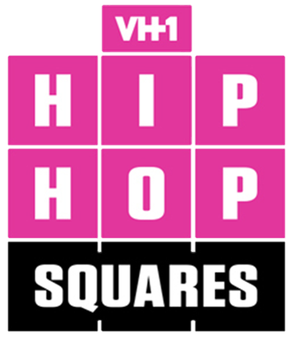Related Research Articles

Name That Tune is an American television music game show. Originally created and produced by orchestra conductor Harry Salter and his wife Roberta Semple Salter, the series features contestants competing to correctly identify songs being played by an on-stage orchestra or band.

Lingo is an American television game show with multiple international adaptations. In it, contestants compete to decode five-letter words given the first letter, similarly to Jotto, with each correctly guessed word earning number draws to attempt filling in a Bingo card.
The Joker's Wild is an American television game show that aired at different times between 1972 and 2019. In the show, contestants answer questions based on categories determined randomly by a mechanism resembling a slot machine. The show's title refers to the game's slot-machine mechanism also having jokers.

Des chiffres et des lettres is a French television programme. It was created by Armand Jammot and tests the numeracy skills and vocabulary of two contestants. It is one of the longest-running game shows in the world, and the inspiration for Countdown on Britain's Channel 4.

Chain Reaction is an American television game show created by Bob Stewart, in which players compete to form chains composed of two-word phrases.

Celebrity Squares is a British comedy game show based on the American comedy game show Hollywood Squares. It first ran on ITV from 20 July 1975 to 7 July 1979 and was hosted by Bob Monkhouse, then—also hosted by Monkhouse—from 8 January 1993 to 3 January 1997.

Body Language is an American game show produced by Mark Goodson Productions. The show aired on CBS from June 4, 1984, until January 3, 1986, and was hosted by Tom Kennedy. Johnny Olson announced until his death in October 1985; Gene Wood and Bob Hilton shared the announcing duties afterward, having substituted on occasion before then.

Game Ka Na Ba?, formerly Pilipinas Game Ka Na Ba is a Philippine game show created by ABS-CBN. The main goal of the game is to win 2 million pesos by answering trivia questions.
Keynotes is a British game show that aired on ITV from 13 March 1989 to 18 December 1992 and hosted by Alistair Divall. The aim of the game was for "two teams of players, to try to put the right words in the right songs and see how well they can follow the bouncing ball to solve our puzzle song."
Illinois Instant Riches is a lottery game show airing in the state of Illinois, as well as nationally on Chicago-based Superstation WGN-TV. The show was hosted by Mark Goodman, with Linda Kollmeyer as his co-host and Bill Barber as announcer.
Sale of the Century is an Australian prime time game show that aired on the Nine Network from 14 July 1980 to 29 November 2001. It is based on both Great Temptation that aired from 1970 to 1974 and on the original Sale that first aired in the United States from 1969 to 1973. The Australian format of Sale has since been used internationally, including in a revived US version that aired from 1983 to 1989.
The (£1,000) Pyramid Game is a United Kingdom game show based on the American format of the same name that was originally shown on ITV from 1981 to 1984 then 1989 to 1990 hosted by Steve Jones, then revived by Challenge in 2007 hosted by Donny Osmond.

Cash Explosion, known as Cash Explosion: Double Play from 1989 until 2012, is the official Ohio Lottery TV game show, which is broadcast on television stations throughout Ohio. The show originated in Cleveland and is now taped by Mills James Productions in Columbus, Ohio.
Lingo is a British game show based on the American programme of the same name, the original iteration of the programme was made by Thames Television and Action Time for ITV, running for a single series with host Martin Daniels from 12 May to 14 July 1988. A revived version has also aired from 1 January 2021 hosted by Adil Ray.

BrainRush is a live-action game show on Cartoon Network, hosted by Lamorne Morris and, to a lesser extent, Sarah Karges. It first aired on June 20, 2009, with its last episode airing on July 22, ending after one season.
We Are Singaporeans is a game show that aired on Singaporean English language channel Mediacorp Channel 5 about everything and anything Singapore from history to culture to trivia. Hosted by Hossan Leong, contestants will get the chance to walk away with up to $20,000 every week. The show, which will run for 15 weeks, will feature guest appearances by local celebrities and icons who will ask contestants questions relating to a particular topic.

Hip Hop Squares is an American television game show originally hosted by Peter Rosenberg, which debuted on MTV2 on May 22, 2012. The show is a licensed format of CBS Television Distribution's Hollywood Squares featuring mostly rappers. The MTV2 version of the show was taped in Brooklyn, New York. The VH1 version was taped in Hollywood, California.
Hot Streak is an Australian afternoon game show aired on the Seven Network in 1998, hosted by James O'Neil. This show was based on the short-lived 1986 America format called Bruce Forsyth's Hot Streak, Two teams of five contestants compete in a battle of the sexes game of word association for a chance to win up to $50,000. The show took over the time slot of the game show Concentration.
Weakest Link is a television game show which first appeared in the United Kingdom on BBC Two on 14 August 2000 and originally ended on 31 March 2012 when its host Anne Robinson completed her contract. The original British version of the show is still aired around the world on BBC Entertainment and domestically on Challenge. The game begins with a team of eight or nine contestants who take turns answering general knowledge questions within a time limit to create chains of correct answers in a row. At the end of each round, the players vote one contestant, "The Weakest Link", out of the game. Once two players are left, they play in a head-to-head contest, with five questions asked to each contestant in turn, to determine the winner.
References
- ↑ "Television This Week - TV Magazine". The Sun-Herald . 29 November 1992. p. 30. Retrieved 12 July 2021– via Newsbank Australia.
- ↑ Danielsen, Shane (14 December 1992). "Keynotes - on Nine at 7pm". Sydney Morning Herald . p. 17. Retrieved 12 July 2021– via Newsbank Australia.